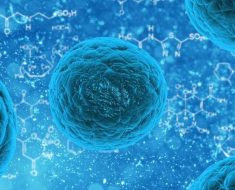This Morning: Liz Earle discusses supplements for hair loss
We use your sign-up to provide content in ways you’ve consented to and to improve our understanding of you. This may include adverts from us and 3rd parties based on our understanding. You can unsubscribe at any time. More info
Supplements are not all made the same and as such their benefits differ greatly too. Side effects and other increased health condition risks are not always apparent. Could your cholesterol-lowering drug be increasing your diabetes risk?
Niacin supplementation has been shown to have benefits with regard to lowering total cholesterol and increasing high density lipoprotein (HDL).
However, more recent studies have shown no cardiovascular benefit by adding niacin to statin therapy.
In addition, it has been shown that niacin increases blood sugar levels.
Therefore, it has been inferred that it may contribute to new-onset diabetes.

One meta-analysis of 11 randomised trials investigated whether or not a link exists between niacin therapy and new-onset diabetes.
The trials were found by conducting a search of the Cochrane database and EMBASE between the years 1975-2014.
13,121 participants were assigned to the niacin therapy group and 13,219 were assigned to the control group.
Of the 26,340 total participants analysed, 725 in the niacin group and 646 in the control group developed new-onset diabetes.
This represents a 35 percent increase in risk of developing diabetes compared to placebo.
The study concluded that therapy with niacin could increase an individual’s risk of developing diabetes.

The study also found that risk of diabetes occurs regardless of whether concomitant statin therapy or combination therapy with laropiprant is used.
One potentially important side effect known to occur on niacin is a rise in glucose levels in those with diabetes.
Conclusive evidence that niacin adversely influences diabetes risk would be an important consideration when assessing risks and benefits of this treatment.
Niacin, or vitamin B3, is a water-soluble B vitamin found naturally in some foods, added to foods, and sold as a supplement.
The two most common forms of niacin in food and supplements are nicotinic acid and nicotinamide.
Niacin is often part of a daily multivitamin, but most people get enough niacin from the food they eat.
Source: Read Full Article





